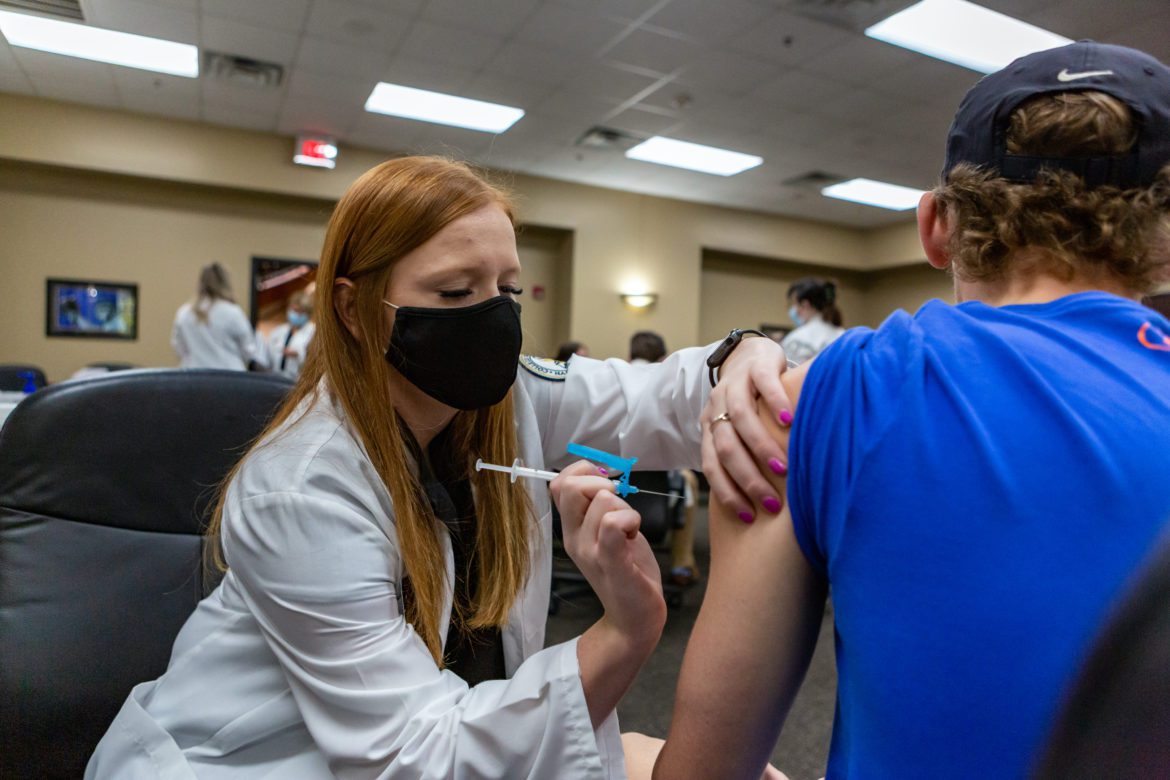In an effort to curb COVID-19 numbers, President Joe Biden said on Sept. 9 that he is requesting the U.S. Department of Labor to require all companies with more than 100 employees to mandate COVID-19 vaccinations or weekly testing.
The mandate will affect 80 million employees, which is almost two-thirds of the private sector workforce according to AP News. The task of issuing the mandates will fall upon the Occupational Safety and Health Administration (OSHA), a regulatory agency of the labor department. Biden also said he would sign an executive order to mandate all federal employees to get vaccinated, exempting them from weekly testing options. Furthermore, beginning Oct. 1, immigrants will be required to receive vaccinations as well to become permanent residents.
The announcements supplement the Biden administration’s six-prong plan to reduce the spread of the coronavirus and keep the country on track. The plan listed efforts to vaccinate the unvaccinated, administer booster shots, keep schools open, increase testing, assist with economic recovery and improve care for COVID-19 patients. The full summary of the plan can be viewed on the White House website.
Many questions arose after Biden’s announcement as the administration did not release a detailed course of action. According to CNBC, the Consumer Brands Association wrote a letter to the president requesting clarification, asking questions such as, “Must an employee be fully vaccinated to work?” and “What are the consequences of falsifying one’s vaccination or testing status and does the responsibility rest with the individual or employer?”
Lori Klein, assistant professor of history and political science, said Harding University would also be subject to these mandates if they become effective — since it has more than 100 employees — unless it applies for religious exemption. However, she said such an exemption may be difficult because, as far as she is aware, the Church of Christ does not have a precedent of rejecting vaccinations as a group, though individuals can apply for exemptions.
“You have to have a basis,” Klein said. “You can’t just say, ‘I object religiously.’ You have to be able to say why. We don’t have, sort of, a history in the Churches of Christ saying we don’t do that.”
Klein also said the mandate would not apply to students.
“The students are not covered by that provision,” Klein said. “They are more likely to be affected by testing and vaccine requirements for large venues — football, basketball, etc.”
Klein said states and private companies may file lawsuits and the government will face challenges enforcing Biden’s executive order since OSHA, which serves as the primary enforcer, has only 800 enforcement officers for the entire country. COVID-19 mandates would have been easier to enforce if they were delivered by law rather than an executive order, Klein said.
A Centers for Disease Control and Prevention committee met Sept. 22 to discuss who should be eligible for a COVID-19 booster dose of the Pfizer-BioNTech vaccine. A U.S. Food and Drug Administration panel voted Sept. 17 to approve the Pfizer booster shots to those 65 or older and who are at high risk of severe illness but declined to approve the shots for other Americans.
Assistant professor of nursing Karen Kelley said the booster shot is very important for those with immuno-compromising conditions.
“Very important,” Kelley said. “Because we know that a lot of folks who have immune systems that don’t respond as robustly did not develop enough of an immune response; it looks like from the data with the third booster that they are. So it’s just taking a little bit more to get them there.”
